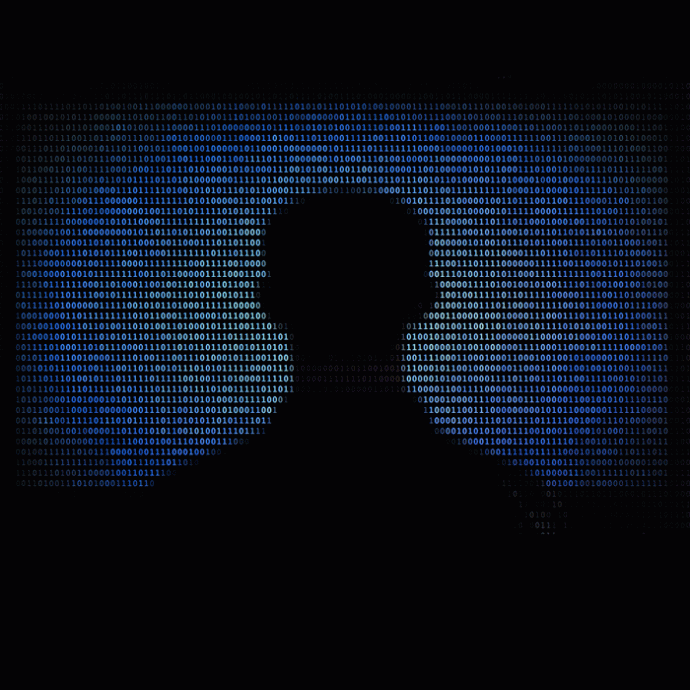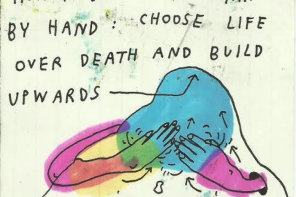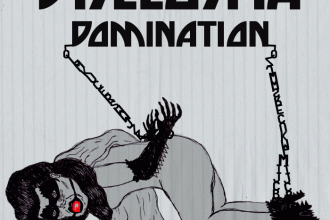In the last years we have witnessed a considerable amount of noise coming from big media companies, fighting for the right to keep their old-fashioned ways to make money. The revolution brought by the Internet and the whole downloading culture scared an important group of people. And they went to war. Mountains of arguments offered from both sides: digital media should be free; artists get only a few breadcrumbs while companies are getting fatter and fatter, the lords of the media industry growing like pigs; free the piratebay; torrent is the ultimate freedom of speech. It is very likely that everyone has already heard one of these mottos.
There is a war going on right now, and we are quite aware of that. But I don’t want to talk about this. Indeed, it is a matter of great urgency, which informed and qualified people have dedicated themselves to. Yet I am interested in another war, even more silent than the copyright battle. How does an individual deal with the overwhelming amount of information that is being streamed into their life?
Let’s try to forget the lords of cultural industry for a moment and put the focus elsewhere: on the space that separates us from the universe – a universe bubbling with fresh information every second – a space we often have the illusion of crossing with the help of our computers and smartphones. How are we supposed to deal with this gargantuan stream of information, entering into our homes through cables and Wi-Fi connections? Is this the age of endless and superficial information? Are we destined to archive all our culture alphabetically, just in case we need to research more deeply one or two things in the future? And most importantly, what does this process tell us about the way we interact with the world? There is more information incoming than we can process, but why aren’t our brains just tired?
Let’s face it, we are somehow addicted (at least I am) to all this agitated mass of information, like bloodhounds going loose on an interminable hunt, or rather just kids to whom too much jam was given. And we spill it all over our faces, over and over again. Entertainment and culture are measured in terabytes. Our machines hoard thousands of hours of films and videos, most of which will lay dormant in our legions of external hard drives, unwatched, until the day they’ll have to be deleted, because we will always need more space. For most of us, our music has to be archived, stored in an eternal repositery, even if we’ll never listen to certain tracks again. All music we have has to be part of a complete discography. Our machines run day and night. We dig, we classify, we tag, we download, we upload, we explore. One could try to sound facetious and say: Downloado, ergo sum. We separate our findings according to film schools, to music genres, according to decades, according to years. We want our computers to apprehend our entire human History.
By no means am I saying this should stop. We undisputedly share more information than any other generation that came before. My point here is just to try to understand the outcomes of this wild flux of information to which we are exposed 24/7. There is too little debate on whether all this information is good or not. Perhaps we are skipping the processing phase, putting all of our energy instead into archiving the scary amount of data which we capture with our machines. Such metaphor is interesting, as some neuroscientists compare the human brain to a complex computer – gathering information from the sensible world, then associating and classifying it according to an extensive list of patterns.
This phenomenon finds a fruitful line of reasoning in the fact that the human brain has an insatiable desire for information. The human brain could perhaps begin working as a factory, processing all gathered information into new ideas, and then archiving it. The reason behind it would be entirely evolutionary. Think of Darwin’s evolutionary theory applied to human consciousness. Stronger ideas, i.e. those ideas capable of enhancing human experience on earth, would triumph over those ideas proved wrong, equivocal, or simply not working as well as the others. Human consciousness could be seen as a machine working uninterrupted, processing all possible information and storing it in our brains. And this would be done for the good of the species.
Imagine someone who, after an exhausting day at work, finds enjoyment playing a Sudoku game. This search for information, this insidious desire to organize the world in our brains, is mostly achieved through our experiences as human beings, by dealing with things around us, by using our five senses. Quite often great human achievements were entailed by a practical situation. That is the case for a good part of Leonard Da Vinci prototypes, for Gutenberg’s greatest contribution to civilization, and so forth.
It could seem like a great waste of energy to stay ‘alert’ looking for input most of the time during our lives. However, evolutionary tricks are here at play. From the most minuscule human cells to the neurons the routine is the same: collecting and storing information. Neuroscientists such as Daniel Bor will defend this behavior as the reason for the most fascinating discoveries of humankind. The human capacity to store huge amounts of information, as well as this voracious appetite for more and more data has lead civilization to push the boundaries of science and go further with technological progress, finding cure for diseases as well as developing its self-awareness, i.e. individuals recognizing themselves as such, separated from the whole.
One might argue that this approach has its flaws (it is excessively anthropocentric after all, but at the same time the point here is to investigate the mechanisms behind the human consciousness) it can be taxed as incomplete and partial. Nevertheless, this conception of the human consciousness touches important aspects of the way we interact with the digital, especially in regard to our tendency to accumulate information and data.
We now touch every inch of the world and we do it through our screens. Laptop, smartphone, TVs, we are connected and we fly over the sky driven by our ravenous soul craving for information and data. We download nearly in an automatic way, photos, texts, music, etc. Every new acquired information works almost like a message in a bottle, sometimes coming from a distant land, sometimes coming from around the corner.
Far from wanting to be the herald of a melancholic primitivism here I firmly believe that forward is the only way to go, but in order to do so a few key elements in our way to interact with the world should be reviewed. The central idea here is experience. We should hold our breaths for a while and try to look for some new model of how we experience reality. It doesn’t matter if reality is an illusion, as Matrix tried to convince us; it doesn’t matter if we are all the creation of a malevolent god, as imagined by Descartes, and it matters even less if the online experience is less concrete, less real than other forms of experience. This is reality now, and we have to deal with it.
Taking from the interpretation of the brain as a computer what should be asked is whether all this technology has been excessively taken for granted, assimilated too fast, leaving us with no time to process it. We have no time to listen to our music because we can have all the music in the world. We are like librarians who are too busy updating the inventory and can’t read one single page. I hope we will never stop sharing and digging and going to the most forgotten corners of the world, where someone with Internet access will be ready to share a slice of his reality, to reveal and learning from individual experiences, but let’s do all of this in a way that we empower ourselves and others at the same time.
The crucial challenge is no longer acquiring new information it is rather to find our way through all this mass using it as a tool to shape our experiences, and shape the world back. Few would disagree that this is the way we are bound to interact with the world from now on, so what’s the harm of extracting all the power and possibilities out of it? I’m afraid that, by not starting to reflect about all of this we risk to end up as pages from a book never written floating on the sea.







